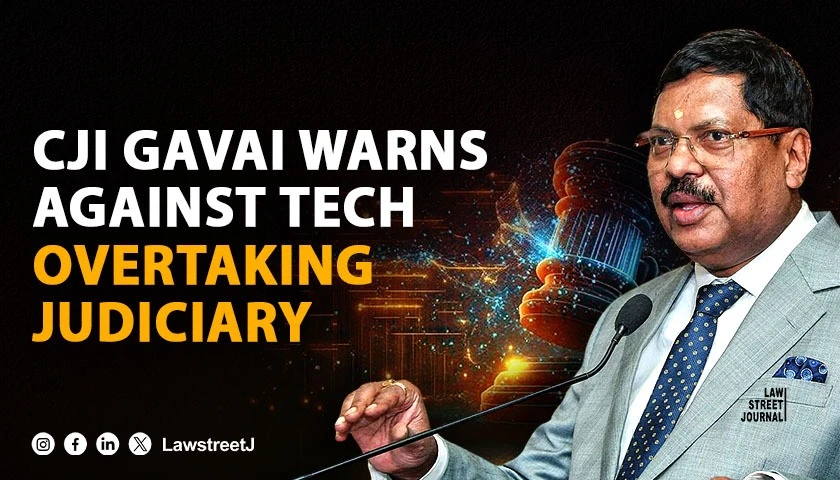NEW DELHI: Chief Justice of India B R Gavai has said when the technology take the driver’s seat inthe legal system, it erodes the public’s faith in the judiciary and with it, the foundations of the rule of law.
He cautioned against the growing role of technology in the justice delivery system.
"As we stand at this crossroads between tradition and innovation, the courts as sentinels of the Rule of Law are both guardians of ancient wisdom and architects of future justice," he said.
In his keynote address at the British Institute of International and Comparative Law, London, on the topic ‘The Role of Courts in Upholding Rule of Law in Adjudicating Commercial Disputes’ he called for the creation of a Commonwealth Dream Team to address the evolving challenges facing the justice system worldwide.
"The moment we let technology take the driver’s seat in the legal system, we begin to erode the public’s faith in us and with it, the foundations of the rule of law," he said.
The CJI said unlike computer algorithms, the law isn’t meant to blindly follow historical trends, optimise for cautioned against overreliance on technology engagement, or serve judgments based on preferences of the audience.
"It is rooted in principles, in reason, and above all, in fairness. The rule of law stands resolute as humanity’s oldest and most dependable algorithm which, far from being a static concept, has evolved alongside humanity,” he said.
He said India has continuously aspired to become a hub of international arbitration by building a progressive legislative framework, a pro-enforcement judiciary and robust institutional support.
The CJI said the rule of law exists not as an abstract concept but as a living promise to real people facing real problems.
"Each case that comes before our courts represents someone's hope for justice, and someone's faith that the system will work fairly and equitably," he said.
The CJI also said the Indian legal community is already a huge part of global players in the field of arbitration - it’s only a matter of time that ‘Made in India’ applies to arbitral awards too.
“India is eyeing a seat at the cool kids’ table alongside London, Singapore and Hong Kong. And this time, it's not just asking for a seat - it's bringing its own chair. It’s laying down the tablecloth, setting the agenda, and slowly but surely, starting to write the rules of the game," he said.
The CJI said the growing maturity of the Indian judiciary has moved the conversation from “will India interfere?” to “can India lead?”
He pointed out one key challenge judges face is navigating the delicate line between respecting arbitral autonomy and safeguarding the rule of law.
"In international arbitration disputes, this often involves applying foreign laws, unfamiliar institutional rules, or enforcing awards that may test domestic notions of public policy. It's a bit like judging a sport where the rulebook keeps changing languages,” he said.
He was also asked how courts can encourage better use of interim relief in arbitration without creating a parallel judicial process.
“Judicial trend would show that courts have been granting interim relief only where truly urgent or irreparable harm is involved, otherwise deferring to the tribunal’s jurisdiction wherever possible. Courts are emphasising the principle of prima facie review, rather than deep judicial scrutiny. This prevents the process from morphing into full-fledged litigation," he said.















